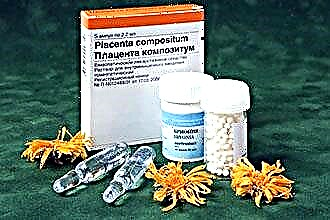Frequent nosebleeds are a fairly common problem. For one reason or another, it occurs in about one in five adults. Many people get scared at first, and then they just stop paying attention to it. And completely in vain, especially if the nosebleeds almost every day. This can be a symptom of serious medical conditions that, if left untreated, can lead to many problems.
Danger of nosebleeds
 Bleeding from the nose seems harmless only at first glance. If large vessels in the nose are damaged, blood loss can be so great that hemorrhagic shock occurs. The first signs of severe blood loss are: weakness, pallor, dizziness, nausea, noise or ringing in the ears. Later, the person loses consciousness. Fortunately, this rarely happens.
Bleeding from the nose seems harmless only at first glance. If large vessels in the nose are damaged, blood loss can be so great that hemorrhagic shock occurs. The first signs of severe blood loss are: weakness, pallor, dizziness, nausea, noise or ringing in the ears. Later, the person loses consciousness. Fortunately, this rarely happens.
But frequent nosebleeds carry other risks:
- Penetration of infection. Damaged blood vessels, even small ones, are open gates for pathogenic microorganisms, which thus enter the bloodstream and instantly spread throughout the body.
- Inflammatory processes. After bleeding, dense crusts form on the surface of the mucous membranes. Their constant presence provokes irritation and inflammation of delicate tissues. If you do not take any measures, then over time, the mucous membranes atrophy and cease to perform their functions normally.
- Lost time. Frequent bleeding can be a sign of various diseases, and not always associated with the respiratory system. The sooner the disease is detected, the more chances there are to prevent its further development or transition to a chronic state.
Therefore, it is by no means possible to ignore the fact that nosebleeds often come. But you shouldn't panic ahead of time either. The reasons for this phenomenon are very diverse and most of them are easily eliminated.
External causes
Periodically and not systemically, blood flows from the nose, usually due to the adverse effects of various external factors. The main reason in this case is the proximity to the surface of the mucous membranes or the fragility of the capillaries. Then even a slight irritation or pressure is enough for blood to appear in the nose.
 Most of the capillaries are located on the inner side of the wings of the nose and the inner nasal septum. This area is called the Kisselbach zone and if it is damaged, there is mild bleeding, which quickly stops, even if no action is taken.
Most of the capillaries are located on the inner side of the wings of the nose and the inner nasal septum. This area is called the Kisselbach zone and if it is damaged, there is mild bleeding, which quickly stops, even if no action is taken.
Irritation of the mucous membrane and rupture of capillaries can provoke:
- Air is too dry. With insufficient humidity in the room, the mucus in the nose thickens and the inner surface of the nasal passages becomes crusted. They irritate and scratch the mucous membranes. And if you try to pick them out, then the capillaries burst, and blood begins to flow.
- Bad habits. Smoking leads to thinning, atrophy and degenerative processes in the nasal mucosa. Frequent alcohol consumption is a chronic intoxication of the body, weakening the immune defense. Hard smokers have bloody nose crusts literally every day.
- Occupational diseases. They cause frequent nosebleeds in adults who work in hazardous industries or in poor working conditions. Cough and runny nose with blood is a common problem among miners, construction workers, chemical and textile workers. The negative factor is constantly polluted air, which causes inflammation and irritation of the mucous membranes.
- Weather. Even among physicians there is such a thing as meteosensitivity. A fairly large percentage of people react poorly to sudden changes in atmospheric pressure or air temperature. Their body responds with a spasm of the blood vessels. Very often, the capillaries burst, and blood flows from the nose.
 Injuries to the nose. These include not only blows and fractures. Nose bleeding can be caused by prolonged strong squeezing (for example, by the bow of improperly fitted glasses), damage to the mucous membrane when cleansing the nose (with a finger or a cotton swab). In case of serious injury, it is advisable to see a doctor, especially if the blood is running strongly.
Injuries to the nose. These include not only blows and fractures. Nose bleeding can be caused by prolonged strong squeezing (for example, by the bow of improperly fitted glasses), damage to the mucous membrane when cleansing the nose (with a finger or a cotton swab). In case of serious injury, it is advisable to see a doctor, especially if the blood is running strongly.- Foreign body ingress. Can injure or severely crush the nasal mucosa and thus cause bleeding. An attempt to remove it from the nose on your own in most cases only leads to an aggravation of the problem, so it is better to immediately consult a doctor.
- Irritants and allergens. Their constant exposure leads to permanent irritation and swelling of the nasal mucous membranes. Their surface is loosened, the capillaries become unprotected, easily damaged.
May cause frequent nosebleeds and abuse of household chemicals. They not only enter the respiratory tract during cleaning, irritating them, but also remain in the air for a while. With their constant use, the mucous membranes of the upper respiratory tract are constantly exposed to a real chemical attack.
Internal reasons
Internal reasons for which often a lot of nosebleeds in adults are constant stress, overwork and various chronic diseases. Actually, stress also provokes various diseases, and systematic overwork and lack of sleep leads to vegetative-vascular dystonia - a psychosomatic disorder characterized by significant jumps in blood pressure.
Other diseases that can be symptomatic of a bloody trickle coming from the nose are:
- High blood pressure. At rates above 160/100, nosebleeds almost always run.
- Blood clotting disorder. The slightest scratch on the nasal mucosa is enough and blood will flow from there, which is difficult to stop.
- Changes in hormonal levels. They are reflected, among other things, on the indicators of blood clotting and can reduce it.
- Diseases of the nose and sinuses: sinusitis, frontal sinusitis, sinusitis, chronic rhinitis.
 Cardiovascular diseases. They cause atrophic changes and fragility of blood vessels, lead to surges in blood pressure.
Cardiovascular diseases. They cause atrophic changes and fragility of blood vessels, lead to surges in blood pressure.- Hepatic and renal failure. They are often accompanied by swelling and high blood pressure.
- Oncology and autoimmune diseases. They strongly weaken the entire body, including affecting the state of the cardiovascular and immune systems.
It will not be possible to get rid of nosebleeds that have internal causes without establishing an accurate diagnosis. They will be repeated until the underlying disease is at least in the stage of stable remission. Otherwise, any other measures will be only temporary.
Therefore, if the nosebleeds at least several times a month, this is already a serious reason to see a doctor and undergo an elementary diagnostic examination.
Analyzes of blood, urine, cardiogram and X-ray are already quite enough to assess the general condition of a person and say whether he has chronic diseases. And the rest should be decided by the doctor according to the situation.
How to quickly stop bleeding
When nosebleeds appear, first of all, it is necessary to stop the blood, and only then find out its causes. Correct actions allow you to do this in just a few minutes. And the wrong ones can lead to the fact that the blood will run for a long time, and an infection gets into the nose.
Therefore, remember what you should never do:
 throwing your head back, as this will cause blood to flow down the throat and may increase bleeding;
throwing your head back, as this will cause blood to flow down the throat and may increase bleeding;- swallow blood that has entered the throat - a large amount of it can cause an increase in the level of acetone in the blood;
- blow your nose - this is how the already formed blood clots are blown out, which clog the damaged blood vessels;
- rinsing the nose with water - this also flushes out clots, in addition, there may be pathogens in the water;
- squeeze the bridge of the nose hard, especially after an injury - if the nose is broken, it can injure internal tissues and increase bleeding.
It will be correct to take a sitting position and tilt your head forward. Slightly pinch the nostrils with your fingers and hold it for 5-7 minutes, breathing calmly at this time through the nose. If blood continues to drip, gently blot it with a clean paper or cloth. You can apply ice to the bridge of your nose (for a few minutes, no longer) or a plastic bottle of chilled water.
When, after correctly performed actions, the blood continues to run in a stream, it means that not the capillaries are damaged, but the vessels. Sterile cotton or gauze swabs soaked in sea buckthorn oil or hydrogen peroxide should be inserted into the nasal passages.
In the case when the bleeding cannot be stopped on its own in a maximum of 20-30 minutes, it is necessary to find out what is the matter with the help of a doctor, since the reason can be very serious.
Prevention measures
Preventive measures to prevent frequent nosebleeds are simple. Perhaps that is why many neglect them. And it is completely in vain, since along the way they restore health and strengthen the immune system:
 giving up bad habits enhances the immune defense and allows the mucous membranes to fully restore their functions in just a few months;
giving up bad habits enhances the immune defense and allows the mucous membranes to fully restore their functions in just a few months;- positive thinking relieves of severe stress or allows you to endure them much easier - without surges in blood pressure and sleepless nights;
- proper nutrition - provides the body with all the necessary substances, lowers cholesterol levels, regulates metabolic processes;
- physical activity - moderate, but regular, improves the work of the cardiovascular system, prevents hypertension;
- hardening procedures, especially water ones - train blood vessels, preserve their elasticity, strengthen immunity, and reduce meteosensitivity.
Saves the nasal mucosa from damage and the correct use of drugs. Not knowing exactly the mechanism of action of drugs and independently prescribing treatment for oneself, one can “kill” the immune system, provoke allergies, and imbalance the hormonal background.
Therefore, do not even treat recurring nosebleeds yourself - a consultation with a doctor will insure you against mistakes and save you from possible complications.

 Injuries to the nose. These include not only blows and fractures. Nose bleeding can be caused by prolonged strong squeezing (for example, by the bow of improperly fitted glasses), damage to the mucous membrane when cleansing the nose (with a finger or a cotton swab). In case of serious injury, it is advisable to see a doctor, especially if the blood is running strongly.
Injuries to the nose. These include not only blows and fractures. Nose bleeding can be caused by prolonged strong squeezing (for example, by the bow of improperly fitted glasses), damage to the mucous membrane when cleansing the nose (with a finger or a cotton swab). In case of serious injury, it is advisable to see a doctor, especially if the blood is running strongly. Cardiovascular diseases. They cause atrophic changes and fragility of blood vessels, lead to surges in blood pressure.
Cardiovascular diseases. They cause atrophic changes and fragility of blood vessels, lead to surges in blood pressure. throwing your head back, as this will cause blood to flow down the throat and may increase bleeding;
throwing your head back, as this will cause blood to flow down the throat and may increase bleeding; giving up bad habits enhances the immune defense and allows the mucous membranes to fully restore their functions in just a few months;
giving up bad habits enhances the immune defense and allows the mucous membranes to fully restore their functions in just a few months;

